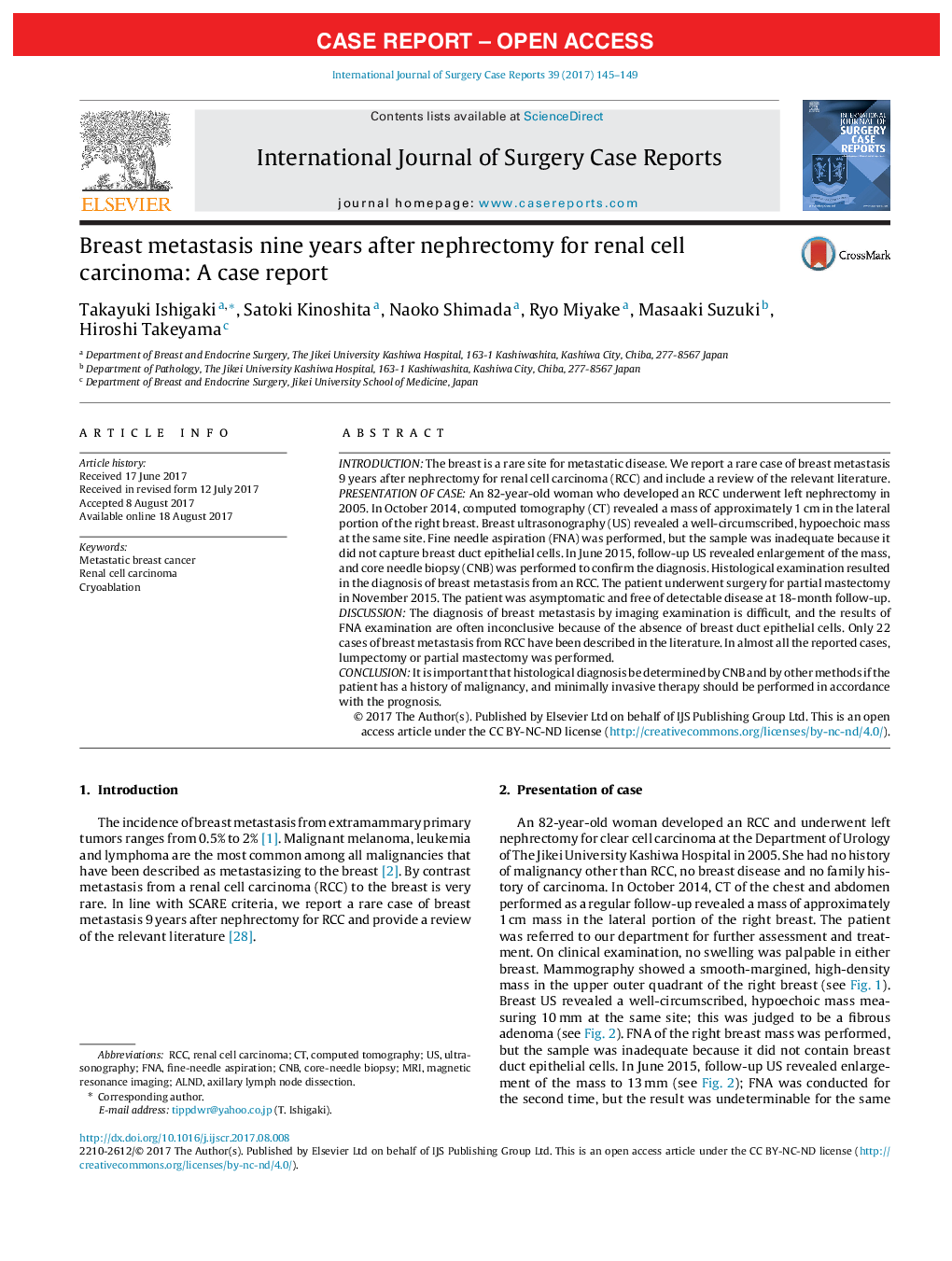| Article ID | Journal | Published Year | Pages | File Type |
|---|---|---|---|---|
| 5732760 | International Journal of Surgery Case Reports | 2017 | 5 Pages |
â¢We report an extremely rare case of breast metastasis from RCC.â¢Including the present case, only 23 cases of breast metastasis from RCC have been described in the literature.â¢It is important that the differential diagnosis of primary breast cancer and metastatic breast cancer be de determined by histological examination.â¢Minimally invasive surgery or nonsurgical ablation should be performed in accordance with the prognosis.
IntroductionThe breast is a rare site for metastatic disease. We report a rare case of breast metastasis 9 years after nephrectomy for renal cell carcinoma (RCC) and include a review of the relevant literature.Presentation of caseAn 82-year-old woman who developed an RCC underwent left nephrectomy in 2005. In October 2014, computed tomography (CT) revealed a mass of approximately 1Â cm in the lateral portion of the right breast. Breast ultrasonography (US) revealed a well-circumscribed, hypoechoic mass at the same site. Fine needle aspiration (FNA) was performed, but the sample was inadequate because it did not capture breast duct epithelial cells. In June 2015, follow-up US revealed enlargement of the mass, and core needle biopsy (CNB) was performed to confirm the diagnosis. Histological examination resulted in the diagnosis of breast metastasis from an RCC. The patient underwent surgery for partial mastectomy in November 2015. The patient was asymptomatic and free of detectable disease at 18-month follow-up.DiscussionThe diagnosis of breast metastasis by imaging examination is difficult, and the results of FNA examination are often inconclusive because of the absence of breast duct epithelial cells. Only 22 cases of breast metastasis from RCC have been described in the literature. In almost all the reported cases, lumpectomy or partial mastectomy was performed.ConclusionIt is important that histological diagnosis be determined by CNB and by other methods if the patient has a history of malignancy, and minimally invasive therapy should be performed in accordance with the prognosis.
